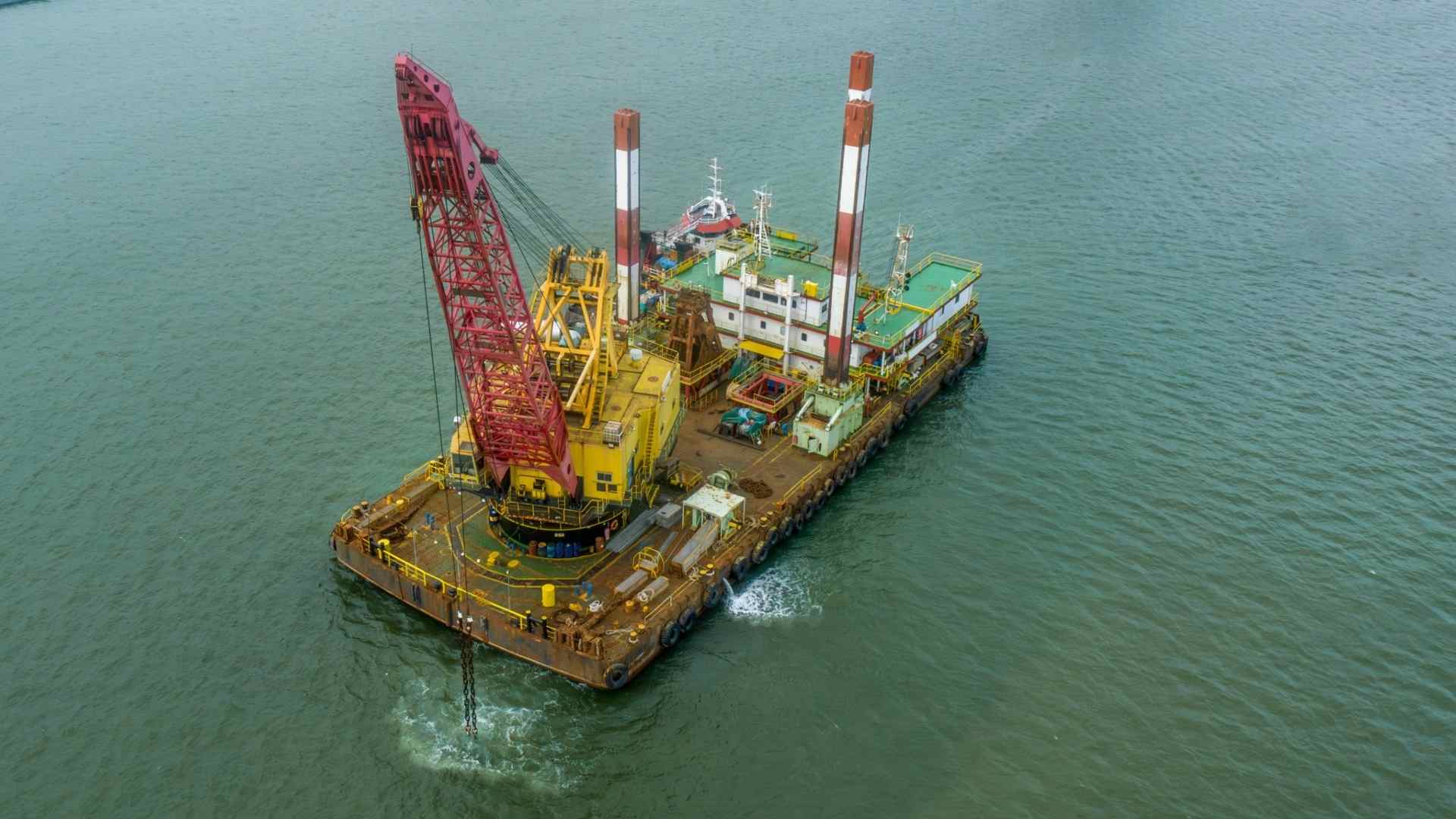Introduction
Karachi Port, one of South Asia’s busiest maritime gateways, is set to undergo a major transformation through a strategic dredging project. Abu Dhabi-based AD Ports Group, in collaboration with Netherlands-based marine contractor Van Oord, has signed an agreement to carry out extensive port dredging works that will deepen berths and navigational channels at Karachi Gateway Terminal Limited (KGTL). The project, managed through AD Ports’ international arm, Noatum Ports, is designed to strengthen Karachi Port’s position as a vital regional trade hub and enhance its competitiveness in global shipping.
Expanding Capacity Through Dredging
The initiative represents a significant step in modernizing Karachi Port’s infrastructure. Once completed in early 2026, the dredging works will allow the port to handle larger post-panamax container vessels exceeding 13,000 TEUs. Container handling capacity at KGTL will rise from the current 750,000 TEUs to 1 million TEUs annually. This expansion will reduce congestion, improve efficiency, and create new opportunities for shipping lines seeking to deploy larger vessels on regional trade routes.
Beyond container handling, the project will also enhance Karachi Gateway Terminal Multipurpose Limited (KGTL-M). With deeper berths, the terminal will be able to accommodate bulk vessels of up to 120,000 tonnes, a sharp increase from its current 60,000-tonne Handymax limit. By doubling bulk cargo capacity, the port is poised to attract more diversified trade, including energy imports, raw materials, and agricultural commodities.
Why Port Dredging Matters
Port dredging is a critical process in maritime infrastructure development. By removing sediment, deepening channels, and reshaping seabeds, dredging ensures safe navigation for increasingly large ships. Global shipping has trended toward bigger container and bulk vessels as operators seek economies of scale. Ports that cannot accommodate these larger ships risk losing traffic and trade opportunities.
For Karachi Port, this project is not just about deeper waters—it is about positioning itself in line with international standards. By investing in dredging, Karachi strengthens its ability to compete with other major ports in the region, including those in the Middle East, South Asia, and East Africa.
Strategic Collaboration Between AD Ports and Van Oord
The partnership between AD Ports Group and Van Oord brings together complementary expertise. AD Ports has emerged as a global player in port management and logistics through its international brand, Noatum Ports. Van Oord, a leading Dutch marine contractor, has decades of experience in dredging and marine engineering projects worldwide. Their collaboration ensures that the Karachi project benefits from advanced technical know-how, sustainable practices, and efficient execution.
This cooperation also highlights the growing trend of international partnerships in port development. As global trade networks expand, ports require investment, technology transfer, and knowledge sharing to remain competitive. By aligning with Van Oord, AD Ports signals its commitment to building long-term value at Karachi Gateway Terminal and beyond.
Boosting Pakistan’s Trade and Economy
The dredging initiative carries significant implications for Pakistan’s economy. Karachi Port is a lifeline for the country, handling the bulk of its imports and exports. By enabling the handling of larger vessels and increasing throughput, the port will reduce shipping costs and improve connectivity with global markets.
This expansion comes at a time when Pakistan is actively seeking to strengthen its role in regional trade corridors. With improved maritime infrastructure, the country can better integrate into initiatives such as the China-Pakistan Economic Corridor (CPEC) and the broader Belt and Road network. Enhanced port capabilities also benefit exporters, particularly in textiles, agriculture, and manufacturing, who depend on efficient maritime transport to access international markets.
Environmental and Technical Considerations
Modern dredging projects like this one also take environmental sustainability into account. While dredging is essential for port expansion, it can disturb marine ecosystems if not managed carefully. Van Oord’s track record in eco-friendly dredging techniques suggests that the Karachi project will incorporate measures to minimize ecological impact. This may include careful monitoring of sediment disposal, use of modern dredging equipment, and adherence to international environmental standards.
From a technical perspective, dredging at Karachi involves deepening berths, widening access channels, and ensuring that navigational routes remain stable for future operations. The project will likely use advanced dredgers capable of handling large volumes of sediment efficiently, ensuring timely completion ahead of the 2026 target.
Strengthening Karachi’s Role as a Regional Hub
Once the project is completed, Karachi Port will be in a stronger position to compete with regional ports in the Gulf and South Asia. The ability to accommodate post-panamax container ships and larger bulk carriers enhances its role as a transshipment hub. This is especially relevant as global shipping alliances optimize their networks and seek ports that can handle the newest generation of vessels.
For shipping companies, deeper berths and modern facilities mean reduced turnaround times and improved operational reliability. For Pakistan, it translates into greater foreign investment, stronger trade ties, and a more resilient economy.
Conclusion
The port dredging project led by AD Ports Group and Van Oord marks a pivotal moment in Karachi Port’s development. By deepening channels and expanding capacity, the initiative ensures that Pakistan’s premier maritime gateway remains competitive in a rapidly evolving shipping industry. With increased container handling, enhanced bulk cargo facilities, and alignment with global standards, Karachi is set to reinforce its role as a vital regional trade hub.
In the broader context, this dredging project underscores the importance of maritime infrastructure in shaping economic futures. Ports that invest in capacity and efficiency not only serve as trade gateways but also become engines of national and regional growth. For Karachi, the waters ahead look deeper, wider, and full of opportunity.
